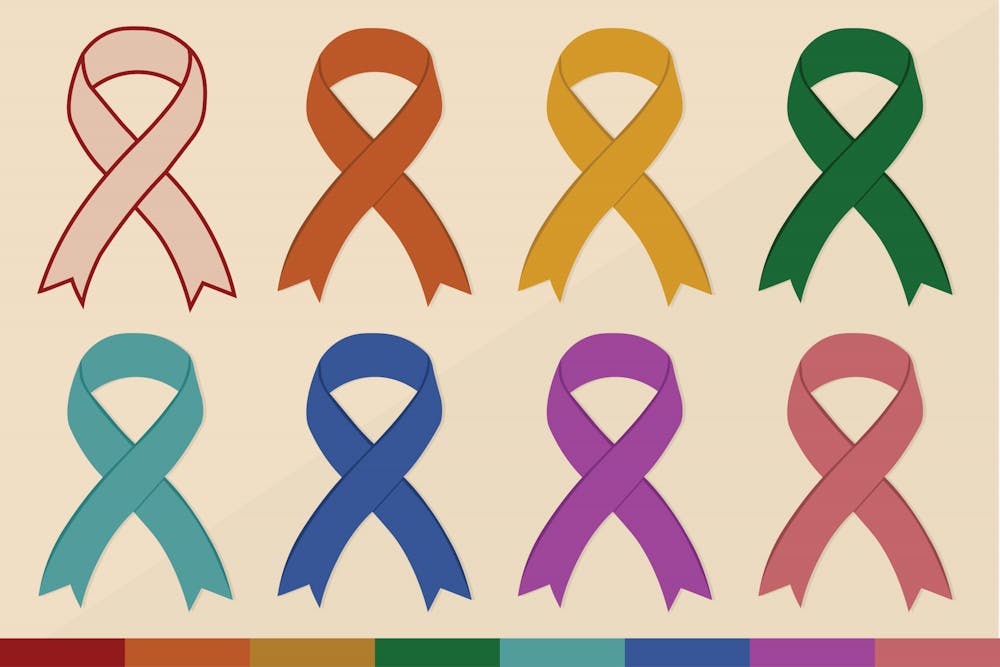There is a notable gap in care, transportation and testing for HIV patients in S.C. That gap must be filled by community organizers and healthcare providers.
HIV is a virus transmitted through bodily fluids and used needles, according to Planned Parenthood. HIV is a relatively uncommon STD compared to gonorrhea and chlamydia, the most common in S.C., but it disproportionately affects the LGBTQIA+ community as well as Black and Latino Americans, according to the Center for Disease Control and Prevention and DHEC.
It may only take a handful of pills a day for a person living with HIV (PLHIV) to live a longer, healthier life, according to the National Institute of Health.
According to the 2020 California HIV surveillance report, California has been able to, for the most part, diagnose and retain the patients who seek out care. This means that this type of care is possible. This isn’t the case for South Carolina.
South Carolina has some of the most regressive laws regarding HIV in the country. For instance, it is a felony for a PLHIV to have sex with someone without disclosing that they are HIV positive first.
HIV is a far cry from the threat it used to be for patients with health insurance. Despite not having a definitive cure, patients can live long lives and even be untransmittable if they’re able to receive proper, continued care.
The status doctors strive for in PLHIV is called U=U, which means Undetectable = Untransmittable, meaning that PLHIV who receive care long enough for them to test for HIV and come up undetectable cannot transmit the virus. If a test can't show the presence of HIV in a patient, the patient can't transmit HIV to a partner.
However, getting continued care is a challenge for some. One in three PLHIVs in S.C. have fallen out of care, meaning a PLHIV has received care at some point, but due to financial challenges, transportation or more, they cannot go back for follow-ups needed for the rest of their lives, according to Dr. Sayward Harrison of the Arnold School of Public Health and DHEC.
One of the biggest factors keeping many patients with HIV unable to regularly go see a doctor or fill a necessary prescription is the lack of affordable insurance or coverage. Many patients are left waiting for affordable care, and will probably be waiting for a while. If the S.C. government won't support PLHIV, PLHIV and their allies need to rely on themselves.
“HIV is now one of the much easier (chronic health conditions to manage),” Sayward Harrison, a professor at the Arnold School of Public Health, said.
The medicine has advanced far enough for people with HIV, but the war still rages on with many opponents in stigma-rooted in homophobia and classism, as well as other ecological factors like affordable care and transportation.
For HIV rights advocate and consultant for AIDS Healthcare Foundation, David Alexander, HIV rights’ primary opponent is ignorance from government, the church and other community leaders.
“The stigma is real. And it’s alive and it’s present as if it was 20 years ago,” Alexander said.
South Carolina laws such as it being a felony for a PLHIV to have sex with someone without disclosing that they are HIV positive first ignores U=U. In fact, it's unclear if this law protects anyone. In all cases in which this law was enforced, the court summary did not disclose if the sexual partner tested positive for HIV, according to the Center for HIV Law and Policy.
These are outdated laws before U=U and when HIV/AIDS was novel. Not to mention, the state's lack of legislation against hate crimes.
Even so, South Carolina has made some progress in care for PLHIV. A lot of that progress would be impossible without DHEC and Tony Price.
Price was an advocate for LGBTQIA+ and HIV rights in the 1980s and founded USC’s first LGBTQIA+ student org, Gay Straight Alliance. Early on, the battle for HIV rights was one against ignorance.
Price recalled using leaflets to show people that they won’t get AIDS from a toilet seat or eating off the same plate or utensils. Early advocates for HIV rights were fighting a stigma in its infancy, and one that catalyzed homophobia.
“(HIV) highlighted in the minds of those who wanted to use it to highlight, just all of the negative things that people could come up with about gay men,” Price said.

Now, his role as Program Manager of the HIV and Viral Hepatitis Prevention Program at DHEC focuses on getting people tested, often due to a stigma still alive.
Initiatives advocating for PLHIV form every now and then, but they are still confronting a neglectful government.
Advocates in government like Price can only send so much money, but until then, community organizers will have to fill the void with accessible testing, care and support for a virus that disproportionately effects the LGBTQIA+ community.

